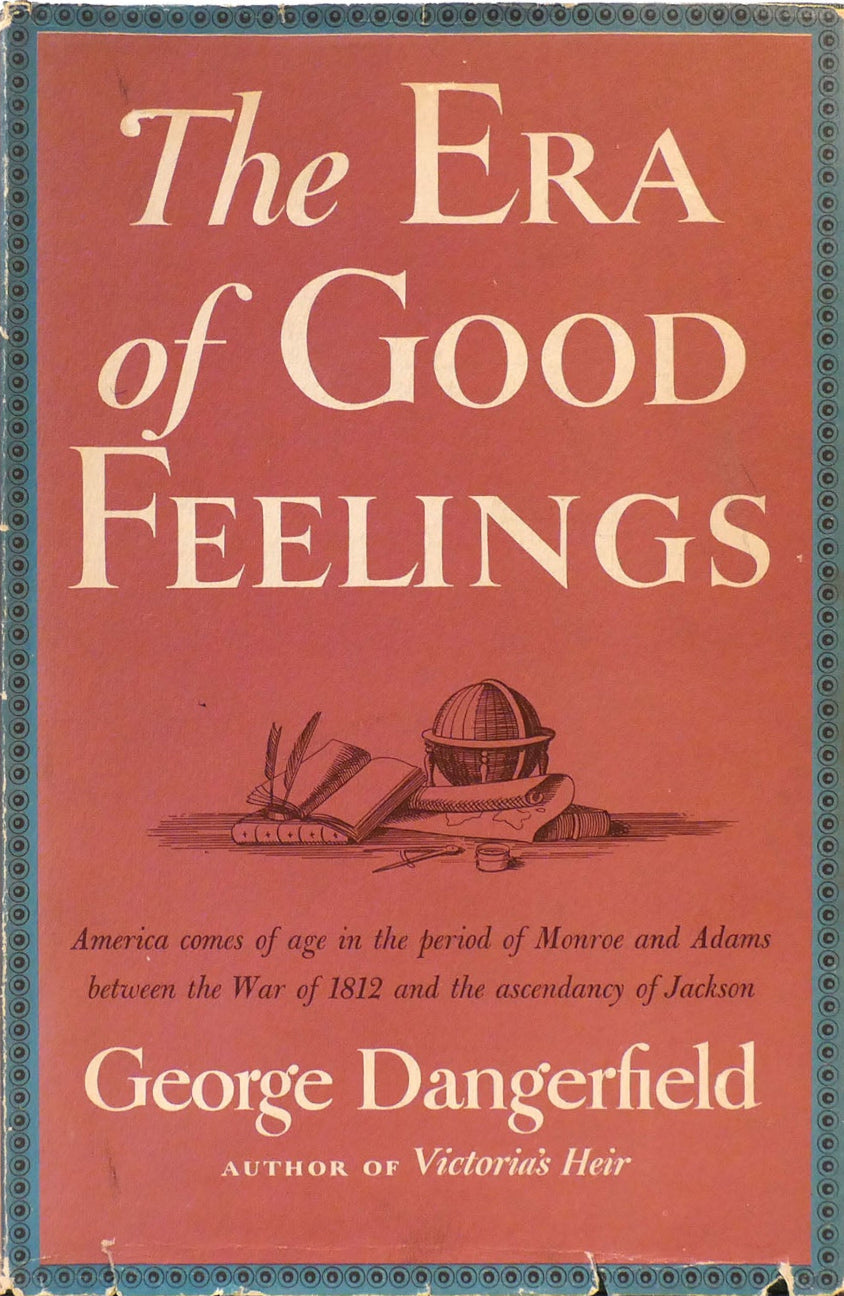Hardcover, 540 pages
English language
Published 1952 by Harcourt Brace.

Hardcover, 540 pages
English language
Published 1952 by Harcourt Brace.
"The Era of Good Feelings" is the name traditionally given to the eight years of the presidency of James Monroe (1817 to 1825). There is reason to believe it was appropriate to at least the first two of them. The United States had won a war, or thought it had; the country was in a period of soaring nationalism; and there was only one national political party. The era was unprecedented and it was brief. But the larger period of which it was the hinge was a time of significant change. It marked the transition from Jeffersonian philosophy to Jacksonian philosophy: from the great dictum that central government is best when it governs least to the great dictum that central government must sometimes intervene strongly in behalf of the weak and the oppressed and the exploited.
The book begins with a discussion of the problems that confronted the American commissioners …
"The Era of Good Feelings" is the name traditionally given to the eight years of the presidency of James Monroe (1817 to 1825). There is reason to believe it was appropriate to at least the first two of them. The United States had won a war, or thought it had; the country was in a period of soaring nationalism; and there was only one national political party. The era was unprecedented and it was brief. But the larger period of which it was the hinge was a time of significant change. It marked the transition from Jeffersonian philosophy to Jacksonian philosophy: from the great dictum that central government is best when it governs least to the great dictum that central government must sometimes intervene strongly in behalf of the weak and the oppressed and the exploited.
The book begins with a discussion of the problems that confronted the American commissioners at Ghent, as they strove to make a good peace with Great Britain in the fall and winter of 1814, when the United States seemed to be fighting for its very life. It gives the background for the nationalism that applauded and upheld James Monroe when he first became president; and described the beginning of a change in Anglo-American relations that was to have a most stimulating effect upon the United States in the years that followed.
The events and maneuvers that culminated in the formulation of the Monroe Doctrine in 1823 are here described in relation to the events and personalities on the world stage, and a crucial and neglected period is brought into new a vivid focus.